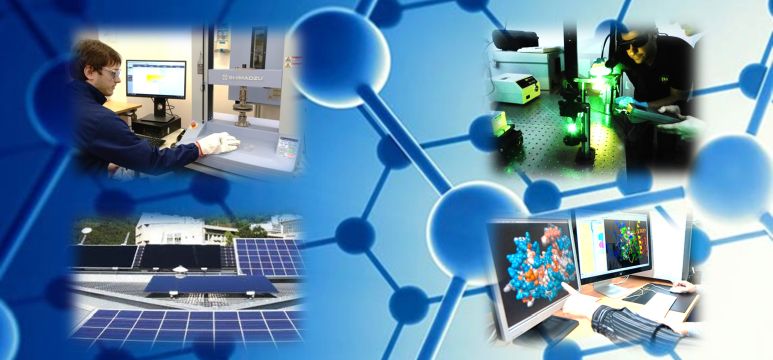
"... we are looking at a major shift in the types of jobs that will exist in the future..."
- Saadia Zahidi, Managing Director, World Economic Forum -
As the job market undergoes unprecedented and exponentially fast changes, focusing on the fundamentals is the key to enable the required flexibility of future professionals, alongside with the deep understanding of the emerging global challenges.
The objective of the Master Degree is to train the materials and chemical engineers of the future, providing:
- a solid and deep knowledge of the scientific foundations of materials and chemical engineering
- a clear understanding of the technologies and dynamics of three particularly important global challenges: sustainable technologies, nano&bio technologies, modern industrial technologies.
Our graduates are high-level professionals able to analyze and resolve complex problems, and are able to apply their knowledge to design and develop innovative materials, processes, and products that help tackling these global challenges.
The key skills of our graduates are (more details here):
- selecting and designing materials
- designing fabrication and chemical processes
- physical and mathematical modeling of materials properties and of chemical processes
- managing plants and processes
The students also learn the basics on how to conduct research and development in the area of materials and processes, in the industrial or academic environment.
The course integrates chemical engineering and materials engineering, thus intrinsically promoting interdisciplinary skills and abilities, and addressing the flexibility needed in advanced research and in the job market.
Course Description -- Study Plan -- Admission -- Admission Requirements
Detailed skills of Materials Engineers and Chemical Engineers
The skills of the Chemical and Materials Engineer are associated with the ability to engineer industrial products and processes, and with the capability to understand the complex relationship between synthesis and manufacturing processes, the consequent structure of materials from the atomic-molecular to the macroscale, and the final properties of the materials and products themselves. Particularly strong are the skills in the field of nanotechnologies and biotechnologies, as well as in technologies for sustainability (for example life cycle analysis, or the design of materials and processes with sustainability criteria or for sustainable technologies).
These skills harmoniously blend with those traditionally possessed by Materials Engineers and Chemical Engineers:
The skills of the Materials Engineer are mainly associated with both scientific and technological knowledge of the most diverse materials: metals and metal alloys; other inorganic materials such as glasses, semiconductors and ceramic materials; natural and synthetic polymers; biological tissues. The Materials Engineer is able to study and understand the micro-nano-scopic properties of materials, and to relate them to their macroscopic behavior and functional and structural engineering properties. From this knowledge a specific competence emerges in the systematic and optimal selection of materials for specific applications, as well as the ability to design innovative materials required by specific applications – in line with the concept that advanced materials work as Key Enabling Technologies in European and global development strategies.
The skills of a Chemical Engineer can essentially be divided into two broad categories: Process and Principles. In the first case, the skills acquired are used for the optimization and control of already existing chemical plants or for the design of new plants. The various plants include the classic petrochemical plants, those relating to fine chemicals and all that vast range of plants dedicated to energy recovery and the treatment of polluted fluids and soils. In the second case, however, the skills acquired are used to study and model various physical phenomena (such as, for example heat, mass and energy transport) which can play a very important role in various technological and research devices such as, for example , biotechnological systems, pharmaceutical systems for the controlled release of drugs. In other words, the “Principles” chemical engineer devotes himself to the physical principles underlying the operation of many equipment / devices. Therefore, in general, the Chemical Process Engineer has a more “practical” cut while the “Principle” chemical engineer has a greater theoretical vocation.


